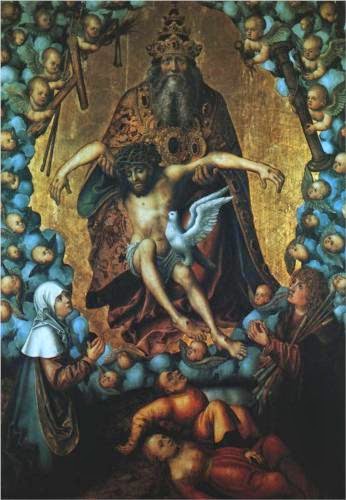.jpg!Blog.jpg) |
| Sacrifice of Isaac -- Caravaggio |
- Genesis 22:1-14 and Psalm 13 •
- Jeremiah 28:5-9 and Psalm 89:1-4, 15-18 •
- Romans 6:12-23 •
- Matthew 10:40-42
On this Sunday the continuous reading brings the story of Abraham to the unnerving episode of his setting out to sacrifice Isaac. It is such an
extraordinary episode that it has long prompted debate, and deep perplexity.
God grants the aging, childless Abraham an only son—Isaac. It is on Isaac that
Abraham pours out all his love, and pins all his hopes. So how could he
possibly be willing to kill the being he most loves, and thereby destroy all
the hopes he has longed for? Even if we could leave the difficult issue of the boy’s
own well being aside, it is exceptionally hard to understand Abraham's state of mind, still less sympathize with it. We can say what it seems we are supposed to say -- that Abraham’s willingness to kill the child
he adores reveals his even greater devotion to God. But isn't this one step
too far. Doesn't such devotion turn his 'faith' into fanaticism? And anyway, what
does it say about the God who would demand such a sacrifice?
There is no easy answer to these
questions. One thing worth noting, though, is that the story constitutes the essential
Jewish background for understanding the sacrifice of Christ on the cross. Christian
liturgies describe this as a ‘full, perfect and sufficient sacrifice’, meaning
thereby to underline the futility of human sacrifice. Even a sacrifice as
overwhelmingly demanding as Abraham seems willing to make, will never bridge
the great gulf between God’s divine holiness and our imperfect humanity. Only action in the opposite direction -- from God to human beings -- can ever do this. As things turn out, of course, Abraham is not
actually required to sacrifice Isaac. God provides a ram, and the boy survives
to perpetuate his father’s lineage. This motif too, is reflected in the Christian
narrative. It is only God who can provide the sacrifice.
Though he is writing in a different context and to a different purpose, in the Epistle Paul has a similar thought in mind when he asks "So what advantage did you then get from the things of which you now are ashamed? The end of those things is death." "Now that you have been freed from sin and enslaved to God", he adds, "the advantage you get is sanctification. The end is eternal life." As he says elsewhere, “The free gift of God is eternal
life in Christ Jesus our Lord”. Of course, we have to see that this is so, and
accept it.






